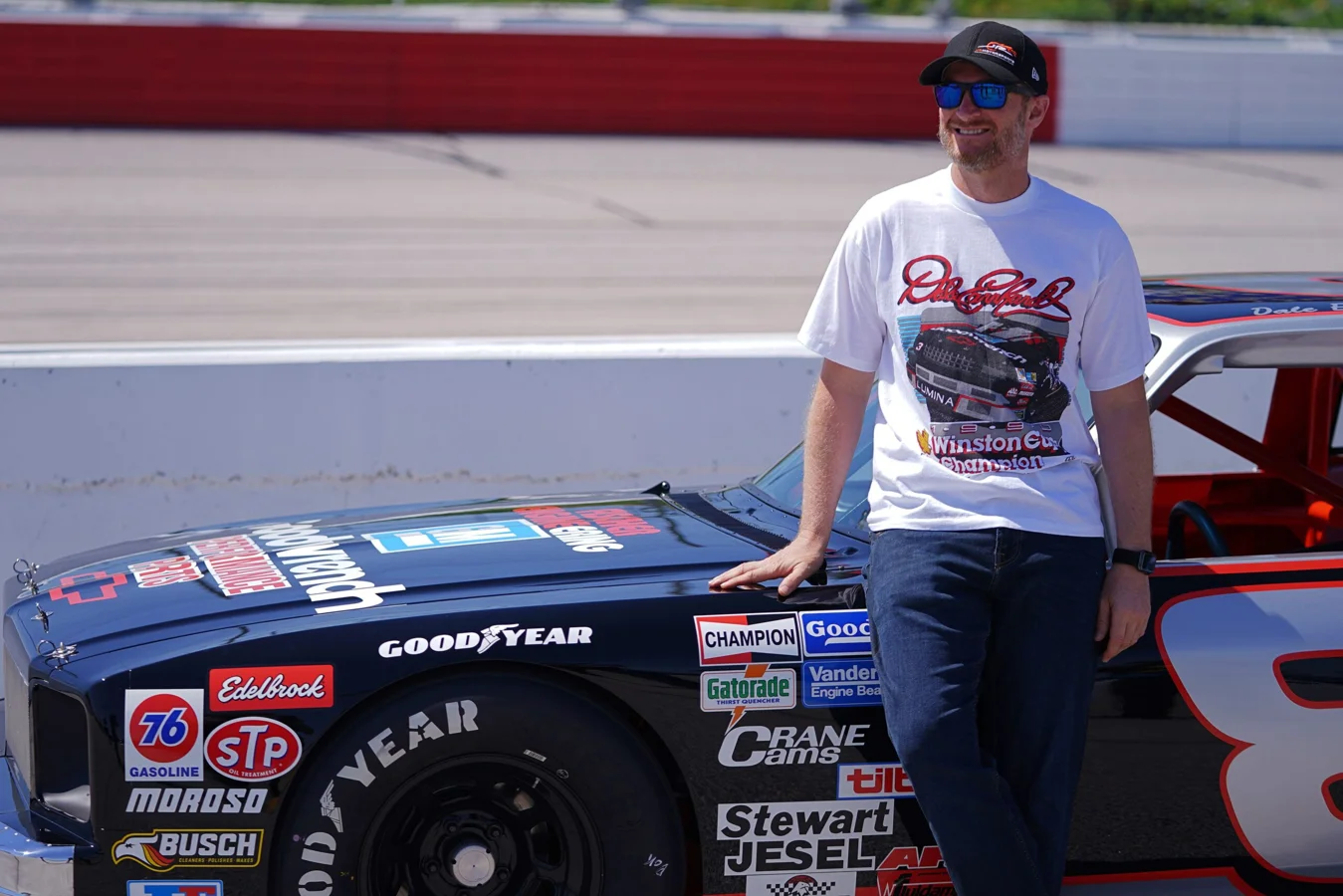Following the Iowa Corn 350, attention shifted from the race itself to a heated confrontation on pit road, sparking widespread conversation—particularly regarding Dale Earnhardt Jr.’s Iowa race reaction. The incident involved Carson Hocevar, who was approached by Zane Smith‘s crew chief, leading to debate both on and off the track.
Post-Race Confrontation Grabs Attention
Although the Iowa Corn 350 unfolded with little on-track drama, the spotlight quickly moved to a post–race argument involving Carson Hocevar and Ryan Bergenty, the crew chief for Zane Smith. During a televised interview, Bergenty approached Hocevar, publicly questioning his driving decisions and using explicit language. The dispute followed an in-race altercation where both Hocevar and Smith made contact, culminating in Smith’s unsuccessful attempt to retaliate on the track.
Discussion about the heated encounter erupted across multiple podcasts, including an in-depth segment on the Dale Jr. Download. Dale Earnhardt Jr. candidly addressed the subject, indicating his weariness with the ongoing debate around Hocevar’s controversial style:
“I’m exhausted talking about Hocevar, everyone. I really wanted to move on and skip over this one, but apparently the rest of the crew is just really enjoying the Hocevar happenings.”
—Dale Earnhardt Jr., NASCAR Commentator
Incident Details and On-Track Fallout
The run-in between Hocevar and Smith occurred when Hocevar lost control underneath Smith, resulting in Smith’s car being wrecked. Earnhardt offered a clear breakdown of the chain of events:
“So he got loose and I guess he got loose underneath Zane and wrecked him, and then Zane tried to wreck him back. Missed.”
—Dale Earnhardt Jr., NASCAR Commentator
The fallout didn’t end with the on-track action, as Bergenty’s post–race confrontation made headlines for its explicit criticism and drew further scrutiny onto Hocevar’s racing tactics. The comments and the aggressive confrontation immediately became a talking point throughout the racing community.
Earnhardt’s Take and the Role of Personality in Racing
Even as the story gained traction, Earnhardt acknowledged the importance of such moments for the sport:
“Man, I mean it’s like we’ve seen this before,”
Earnhardt remarked.
“Multiple times. I don’t mind it, I think it’s fine. I mean Hocevar needs to hear from somebody, so I’m fine with that.”
—Dale Earnhardt Jr., NASCAR Commentator
Hocevar himself showed little remorse, turning to social media to underscore his defiant attitude. He posted an Instagram story of the Drake song “IDGAF,” which stands for “I don’t give a f***,” along with an image that referenced how often he is called out after races, reinforcing his unapologetic stance.
Earnhardt summed up this boldness by emphasizing the need for strong personalities in motorsports:
“So our sport needs personality and he’s got a lot of personality. And I don’t, some of the stuff that he does or has done or does in the future, I’m not going to love all of it. But I like it because we need people, like, hey. We need people that are like that.”
—Dale Earnhardt Jr., NASCAR Commentator
Significance of the Incident and What Follows
The confrontation in Iowa and the ensuing debate highlighted the intense emotions and divided opinions that characterize NASCAR’s competitive environment. Dale Earnhardt Jr.’s Iowa race reaction encapsulates the ongoing struggle between maintaining order and encouraging individuality on the track. With personalities like Carson Hocevar continuing to spark controversy, NASCAR may see further polarizing moments that draw interest, challenge decorum, and fuel discussions for both insiders and fans.
